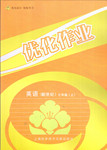题目内容
It’s Friday evening. My daughters, 3 and 9, sigh(叹息) when I ge ntly
take the iPads away from their laps. One by one, our screens are turned off. We
light the candles and sit down to have a big meal.
ntly
take the iPads away from their laps. One by one, our screens are turned off. We
light the candles and sit down to have a big meal.
Most people in our lives know they will not be able to contact us by using computer or moblie phones for 24 hours. And so it has gone, every week for three years. We call it our “Technology Shabbat(科技安息日)" which lasts from sunset on Friday to sunset on Saturday.
I first understood the importance of disconnecting in 2008, when my father was told that he
had got brain cancer. Some days he would have ony one good hour, and I wasn’t willing to be disturbed when I was with him, so I’d turn off my mobile phone.
Soon after, encouraged by National Day of Unplugging(全国断网断电日) on March 1st, my husband and I decided to unplug for one full day every week.
During our “Technology Shabbats”, time slows. Our Saturdays now feel like mini-vacations. We drive our car or ride our bike. We, with our kids, work in the garden, play board games and cook meals. I feel more balanced. I feel like a better mother, wife and person.
Keeping a balance between the good and the bad of technology is my lasting state. The technology we’ve created makes it possible for us to share knowledge and take in carious ideas all over the world. But the technology also take something away from us. When we stay up late at night linking(连接) from website to website or sending messages or e-mailing, we click again, and again, and again until we’ve overloaded(超负荷的).
When we rush into the time full of high technology, it's necessary for us to pay attention to what we are doing online and when we should go off.
I will always remember the most important thing in my family: “Technology Shabbat".
1. When is “Techtwhgy Shabbat' in the writer's family?
A. Only on Sunday.
B. From sunset on Friday to sunset on Saturday.
C. Only on Friday.
D. From sunset on Saturday to sunset on Sunday.
2. The writer's family have “Technology Shabbat" every week mainly becausc they hope to ______.
A. save energy
B. enjoy life together
C. stay away from others
D. follow National Day of Unplugging
3. What do the writers family NOT do during their “Technology Shubbats”?
A. They drive their car or r ide
bikes for mini-vacations.
ide
bikes for mini-vacations.
B. They light the candles and sit down to have a big meal.
C. They work in the garden, play board games and coo k
meals.
k
meals.
D. They stay up late at night linking from website to website.
1.B
2.B
3.D
【解析】
试题分析:本文叙述了作者一家在父亲病重需要照顾的情况下,体会到了关机不被打扰的安静,又在全国断网断电日的鼓励下,作者一家决定每周也实行断电断网日,来享受一家人的天伦之乐。
1.细节理解题。根据We call it our “Technology Shabbat(科技安息日)" which lasts from sunset on Friday to sunset on Saturday.可知从周五的日落到周六的日落为科技安息日,故选B。
2.推理判断题。根据I feel more balanced. I feel like a better mother, wife and person.可知作者一家享受了天伦之乐,故选B。
3.细节理解题。根据encouraged by National Day of Unplugging(全国断网断电日) on March 1st, my husband and I decided to unplug for one full day every week.因为作者在全国断网断电日拔掉了电源,关了电脑,所以不可能做的事情就是上网了,故选D。
考点:故事类短文阅读。

 培优三好生系列答案
培优三好生系列答案 优化作业上海科技文献出版社系列答案
优化作业上海科技文献出版社系列答案| For Children Museum: Children’s Museum, Sundays, 89 North Street, 67641235 Story time: Children’s Library, 106 Green Street, Wednesdays during 9:30 a.m -5:00p.m. 66599624 Sports: Soccer Club, Tuesdays and Thursdays, 16 Yangtze Road, 96725643 Basketball Club, Wednesdays and Fridays, 79071632 Cinema: New films for children, 99 Brick Road, 69001354 |
| Useful Phone Numbers Fast Food Restaurant: 66387901 Hospital: 68787451 Visitor Information Center: 800-120-9847 Taxi: 79210583 Visitor Hotel Information: 800-739-7302 |
| A.visit the museum | B.play soccer |
| C.play basketball | D.read children’s stories |
| A.ask for some hotel information |
| B.do some shopping |
| C.have a good story time |
| D.order fast food in a restaurant |
| A.looking for a hotel | B.shopping online |
| C.eating fast food | D.taking a taxi |
| For Children Museum: Children’s Museum, Sundays, 89 North Street, 67641235 Story time: Children’s Library, 106 Green Street, Wednesdays during 9:30 a.m. ~ 5:00 p.m. 66599624 Sports: Soccer Club, Tuesdays and Thursdays, 16 Yangtze Road, 96725643 Basketball Club, Wednesdays and Fridays, 79071632 Cinema: New films for children, 99 Brick Road , 69001354 |
| Useful Phone Numbers Fast Food Restaurant: 66387901 Hospital: 68787451 Visitor Information Center: 800-120-9847 Taxi: 79210583 Visitor Hotel Information: 800-739-7302 |
| A.visit the museum |
| B.play soccer |
| C.play basketball |
| D.read children’s stories |
| A.16 Yangtze Road | B.99 Brick Road |
| C.106 Green Street | D.89 North Main Street |
| A.ask for some hotel information |
| B.do some shopping |
| C.have a good story time |
| D.order fast food in a restaurant |
---Lucy, ______________________?
---It’s Friday. The weekend is coming.
|
A.What’s the matter |
B.what day is it today |
|
C.what are you up to |
D.what’s the date today |
